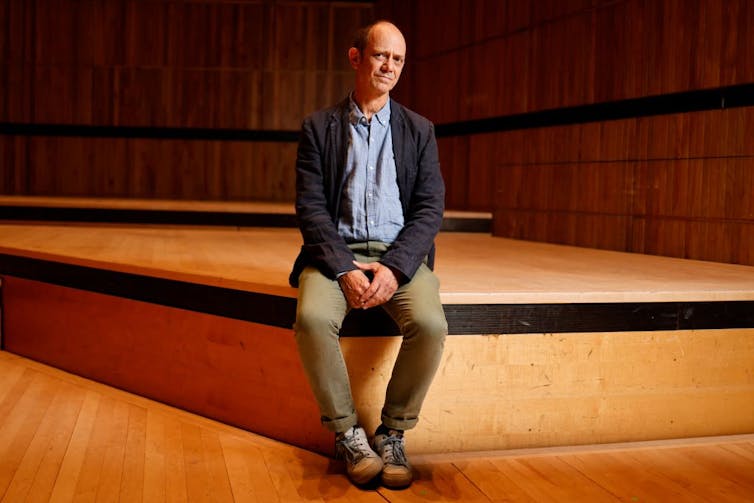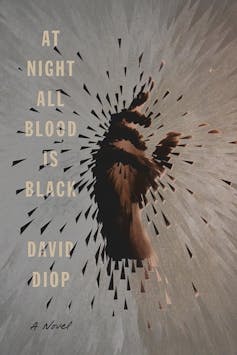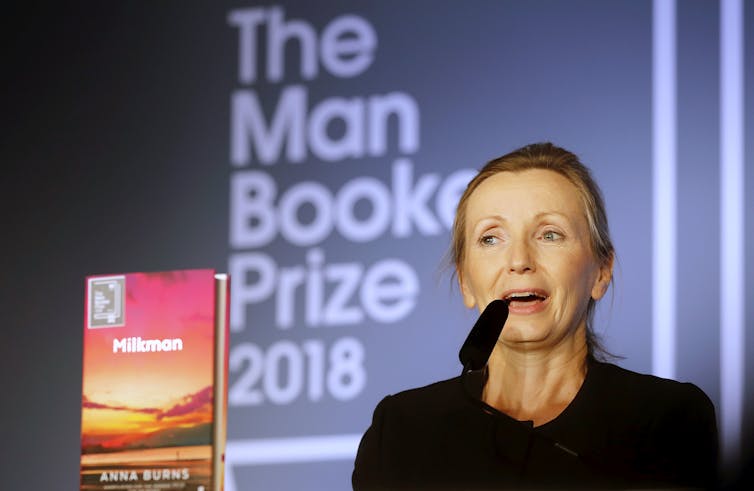Daniel Conway, University of WestminsterThis article may contain spoilers.
Damon Galgut, a white South African playwright and novelist, has won the 2021 Booker Prize for his novel The Promise, a satirical portrait of a white family living in Pretoria in post-apartheid South Africa. The story is a very personal one for Galgut, who grew up in Pretoria and witnessed late apartheid and its demise.
The novel follows the decline of four generations of the Swart family over 40 years and starts at the end of apartheid. It focuses on the pledge made by a dying family member to bequeath the family’s property to their black domestic worker. This promise goes ignored by future generations of the family. And it becomes an allegory for the broken promises made to black South Africans at the dawn of the country’s non-racial democracy in 1994.
As an academic who has focused on South African society and history, I first came across a photo of Galgut when I was researching the End Conscription Campaign – a white anti-apartheid movement formed in 1983 that aimed to abolish compulsory military service.
Like all white men at the time, Galgut was legally obliged to serve for two years in the South African army enforcing apartheid rule. Galgut was featured as “National Serviceman of the Month” in a 1983 edition of the apartheid military’s propaganda magazine, Paratus. This is a broader subject he has explored in his 1991 novel, The Beautiful Screaming of Pigs.
A troubled history
The majority of white South Africans are descended from Dutch settlers and speak Afrikaans. During apartheid, racial separation was legally enforced and many white people saw themselves as a superior race. Whites were given the best jobs and education – creating a wealthy white elite. After a lengthy Liberation Struggle with widespread protests and leading to a violent State of Emergency in the 1980s, Nelson Mandela was released from prison in 1990 and negotiations began.
The African National Congress has been in power in South Africa ever since the election of Nelson Mandela in 1994. But under the leadership of President Jacob Zuma (2009-2018), the party badly let down the country – with a decade of endemic corruption.
Today, more than 25 years since the first democratic elections, white South Africans continue to dominate the economy, higher education and much of the media. And white South Africans continue to wield significant political power.
At the same time, many in the country’s white community have ignored their role in ongoing racial inequality and are resistant to meaningful social, economic and political change. Large numbers of white families have emigrated or retreated to fortified luxury compounds within the country – and continue to profit from systems of structural racism. It is maybe no surprise, then, that white supremacist movements in South Africa are thriving.
White resistance
As I discovered in my research, many white liberals who once opposed apartheid have become reactionary critics in the new South Africa.
Politician and former journalist, Helen Zille, for example, who served as the national leader (2007–2015) of the Democratic Alliance – South Africa’s official opposition party – has gone from being a liberal anti-apartheid and anti-conscription campaigner in the 1980s, to controversially describing South Africa as ‘a modern constitutional democracy’, imposed, ‘on what is largely a traditional, African feudal society’ and reproducing culture war discourses for a South African audience in her latest book #Stay Woke: Go Broke.
Despite Zille, who is also the former mayor of Cape Town and premier of the Western Cape, being publicly called out, suspended and investigated by her own party for numerous tweets that defended colonialism, claiming it was “not all bad”, she remains the party’s Federal Chairperson and played a leading role in the recent provincial and municipal elections.

Salt Rock Digital/Shutterstock
Research has also found that many white people who lived through apartheid minimise the suffering and racism of the time. It has even been claimed by some that white “suffering” post-apartheid could be worse than the experiences of black people during apartheid.
But while racism is still deeply embedded, with South Africa’s simmering social and class divisions continuing to play out, there are some signs of racial reconciliation. Just as during the traumatic years of apartheid, intelligent and humane cultural critics, artists, academics and activists, continue to be deeply committed to achieving meaningful change.
Indeed, with the success of The Promise, Damon Galgut joins a distinguished line of South African authors. Those such as Herman Charles Bosman, Andre Brink, Nadine Gordimer and JM Coetzee, all of whom grappled with the complex dynamics of the country’s white community in their writing. And in this way, Galgut’s Booker win serves a crucial purpose in illuminating, questioning and exploring the country’s continued difficult journey to a better future.![]()
Daniel Conway, Senior Lecturer in Politics and International Studies, University of Westminster
This article is republished from The Conversation under a Creative Commons license. Read the original article.







You must be logged in to post a comment.